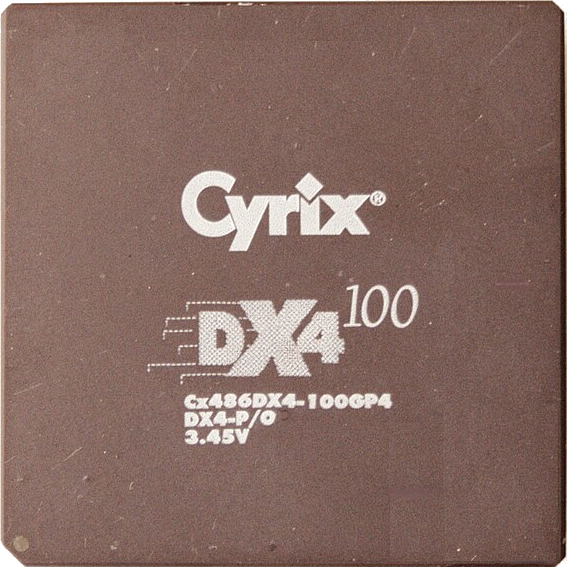- cross-posted to:
- selfhosted@lemmy.world
- linux@programming.dev
- cross-posted to:
- selfhosted@lemmy.world
- linux@programming.dev
This is an important issue IMO that needs to be addressed and the official response by Bitwardens CTO fails to do so.
There is not even a reason provided why such a proprietary license is deemed necessary for the SDK. Furthermore this wasn’t proactively communicated but noticed by users. The locking of the Github Issue indicates that discussion isn’t desired and further communication is not to be expected.
It is a step in the wrong direction after having accepted Venture Capital funding, which already put Bitwardens opensource future in doubt for many users.
This is another step in the wrong direction for a company that proudly uses the opensource slogan.
nothing lasts forever without being enshittified
Except if it’s free software.
Welp, I guess another time to move here soon.
And I just fucking vouched for them to a friend recently 🤡
Didn’t know about VC funding these parasites using their funding to turn everything into shite.
What’s the current “best” alternative? Keepass?
I haven’t jumped yet, but the Proton suite is looking more and more appealing. I’ve been eyeing them as a Gmail replacement, but I’ve been happy with my VPN and password management providers. As this reduces the bundle makes more sense.
They have a solid value proposition but don’t like putting all my eggs all in one basket both for security and monopoly reasons.
They seem to be gunning for one stop shop and I think they are doing decent shop but I just don’t like the idea after what Google did to us.
Situation is a bit different but gonna need to tka the lessons and not let these corpos do this again.
That’s a good practice, and I think you’re right that is what they’re going for. I don’t think that means you shouldn’t consider them, but it does lower their value proposition as the bundle is the better deal.
this isnt a full solution obviously, but I figured it’d be nice to know: Proton lets you set different passwords for your email and password manager, so at least from a security standpoint its not all behind the same password, even if it is still from the same company
It’s not open source, but I got a lifetime license for Enpass over a decade ago and it’s done everything I’ve ever needed it for. I think stacksocial occasionally has new lifetime codes for sale. I like the idea of Proton Pass as others have said, but it feels a bit like putting all my eggs in one basket, which is a mistake I already made with Google before (context: I use Proton for email). I think Keepass is the next best option if dedicated to staying FOSS.
They’re basically trying to get rid of vaultwarden and other open source forks. I expect they’ll get a cease and desist and be removed from github at some point in the not too distant future if they don’t make some changes. I have a vaultwarden instance and use the bit warden clients. Guess I’ll need to look for alternatives in case Bitwarden decides to get aggressive.
Oh, for fuck’s sake. Can we have a decent password manager that isn’t tied to a browser or company? I pay for Bitwarden. I’m not being cheap. But open source is more secure. We can look at the code ourselves if there’s a concern.
Keepass: Am I a joke to you?
Love Keepass. Love that I can sync it however I want. Love that there are multiple open source client options across several operating systems.
Android syncthing announced they’re stopping development this year. Open source got fucked double today
terrible day. There is a fork called syncthing-fork that is under current development. I hope both projects merge.
Keepassxc? Vaultwarden?
Isn’t Vaultwarden used with non-free Bitwarden clients?
This need not be the case, though! There’s an open source client on Android called Keyguard. I don’t think the desktop app was at all useful anyway. You can just log into your Vaultwarden through any browser. The desktop app is pointless.
True, but the firefox extension is nice.
Keyguard isn’t open source. Have a look at their license. It just says “All rights reserved”.
The clients are free.
They now require a non-free Bitwarden SDK component. That’s what this whole conversation is about.
And the whole conversation is about a bug, not a change in direction…
Update: Bitwarden posted to X this evening to reaffirm that it’s a “packaging bug” and that “Bitwarden remains committed to the open source licensing model.”
Could you ELI5 please?
“You may not use this SDK to develop applications for use with software other than Bitwarden (including non-compatible implementations of Bitwarden) or to develop another SDK.”
This is a condition when using their SDK. This is not considered a free (as in freedom) component because it violates freedom 0: https://www.gnu.org/philosophy/free-sw.en.html#four-freedoms
Only the desktop client. And the response is that not being able to compile sans SDK is an issue they will resolve.
I still think this is bad directionally, but we need to see what happens.
Its called Keepass. You are welcome
Nothing in the article or in the Bitwarden repo suggests that it’s moving away from open source
It is a license problem. The license condition of the SDK which is required to build the client app change to limit the usage of it. The new license states that you can only use the Bitwarden SDK for Bitwarden. It is against the Freedoom-0 of the Free Software Foundation. The limitation of English language is that it is hard to differentiate between Free (as in Free bear) and Free (as in Freedoom). Also open source which could mean complaining with FOSS and that source is available. This been unfortunately have been abused before.
From the article, it’s a packaging bug, not a change in direction.
Update: Bitwarden posted to X this evening to reaffirm that it’s a “packaging bug” and that “Bitwarden remains committed to the open source licensing model.”
I was referring to this which started it all.
Here is the code in question. Basically, it’s a source-available, but not FOSS internal SDK, with the following language:
The password manager SDK is not intended for public use and is not supported by Bitwarden at this stage. It is solely intended to centralize the business logic and to provide a single source of truth for the internal applications. As the SDK evolves into a more stable and feature complete state we will re-evaluate the possibility of publishing stable bindings for the public. The password manager interface is unstable and will change without warning.
So I think the “bug” here is in not linking the original repo in the NPM package, and there’s a decent chance that this internal SDK will become FOSS in the future once it stabilizes. That said, it’s currently not FOSS, but it’s too early IMO to determine whether Bitwarden is moving in a non-FOSS direction, or if they’re just trying to keep things simple while they do some heavy refactoring to remove redundancy across apps.
Given their past, I’m willing to give them the benefit of the doubt, but I’ll be making sure I have regular backups in case things change.
Pass.
Notepad.exe
Its open source now right?
EDIT: The article has been updated and it was described as a “packaging bug” and not an intended change.
How many times do I need to pack up and move to the next “best option”
Sadly as many times as needed, complacency is how these companies get “loyal customers” who are willing to put up with bs
Just go to Keepass and its over
That’s far from the best option. It’s working, but it’s super complicated compared to Bitwarden and other cloud password managers. Imagine telling your grandma “just use keepass”, she would never be able to make it work. But Bitwarden? Lastpass? That’s possible
Is it so?
I feel like anyone who can open up and edit ms word can do it, just double click on the
keepass.kdbxfile and it opens up prompting for a password.Syncing is a bit of a problem and I wrote an article on how I do it here in the easiest way I found. Though MEGA cloud does not have a good reputation among general public, their share link is something you can write in a piece of paper and keep in a safe.
“Just double click the keepass.kdbx” is not what it is. You need to go to your explorer, find the file in the folder structure and double click it. You then need to search for the website you are on and copy the password, then you need to go back to the website within 12 seconds and paste the password. That’s inconvenient for everyone, but for a tech-illiterate grandma it’s impossible.
Compare that to Bitwarden: You go to the website, click on the bitwarden icon and then click on the login details. Or even better, you can enable auto-complete with a single click and it automatically fills the login details when on the website, without clicking anything. That’s far more convenient and easier.
Just as a FYI: My grandma has a sticky note on her laptop that shows exactly which buttons to press to get to her emails, with things like “Click this twice within 2 second, be fast!!” for a double click. It doesn’t say “lef mouse button”, she draw her touchpad and an arrow. She is not able to find her mails when the website changes the layout.
In this case, zero, because it’s a packaging bug, not an actual change in direction. Read the update on the article:
Update: Bitwarden posted to X this evening to reaffirm that it’s a “packaging bug” and that “Bitwarden remains committed to the open source licensing model.”
Next time, before jumping to conclusions, wait a day or two and see if the project says something.
Not sure who downvoted you, you literally quoted the article.
I really hope that this is actually the case, but I am not very optimistic. This doesn’t seem to be a mistake. They intentionally move functionality of their clients to their proprietary SDK library. The Bitwarden person stated this in the Github issue and you can also check the commit history. Making that library a build-time dependency might actually have been a mistake. That does not change the fact, that the clients are no longer useful without that proprietary library going forward. Core functionality has been move to that lib. I really don’t care if they talk to that library via some protocol or have it linked at build time. I wouldn’t consider this open source, even if that client wrapper that talks to that library technically is still licensed under GPLv3.
They intentionally move functionality of their clients to their proprietary SDK library.
Proprietary is a strong word IMO. Here’s the repo, it’s not FOSS, but it is source available. It’s entirely possible they make it more open once it stabilizes, but it’s also possible they make it less open as well. It’s still early, so we don’t know what the longer term plans look like.
I don’t think we should be panicking just yet, but I’ll certainly be checking back to see what happens once this internal refactor is finished, and I’ll be making some more regular backups just in case they are, in fact, trying to take it proprietary. I don’t think that’s the case (why would they? I don’t see the benefit here…), but I guess we’ll see.
Proprietary is a strong word IMO. Here’s the repo, it’s not FOSS, but it is source available.
Yeah, that’s what I meant by “proprietary”. I guess having the source to look at is better than nothing, but it still leaves me uneasy. Their license lets them do anything they want (ignoring that - as it stands - their license is void due to the linkage with GPLv3 code, but they said they want to fix that). I have no idea what their plan is. I don’t think it is in their best interest to go the route they appear to be going. Having truly open source clients seems to be a selling point for quite a few customers. But what do I know…
Agreed. If they end up not making this component FOSS, I’ll probably leave and take my paltry $10/year with me (which I don’t need to pay since the features I use are all in the free version). But I’ll give them a year or so to work out whatever refactoring they’re doing before making that call, I’m certainly not going to jump ship just because a new component is merely source-available.

oh thank god
The community’s reaction is a but funny if this was a honest mistake
Vaultwarden updated link
Open source version of bitwarden written in rust.
Where is the foundation to support foss?!?
If they’re moving away from open source/more monetisation then they’re going to do one of two things.
1: Make the client incompatible (e.g you’ll need to get hold of and prevent updating of a current client).
2: DMCA the vaultwarden repoIf they’re going all-in on a cash grab, they’re not going to make it easy for you to get a free version.
Don’t forget option 3: someone writes a vaultwarden client independent of the closed-source crap.
If you can write a server that fully supports the client via the documented API, then you know everything you’d need to do to make a client as well.
That’s not a third option in the same list (things they are going to do), it’s an item in an entirely different list (foss responses to their actions).
You can’t “dmca” the fork that was created while it was still open source. They could only prevent it from getting future updates (directly from them).
If you mean they shouldn’t. I’d agree. But, as has been seen a lot on youtube. “They” can DMCA anything they want, and the only route out is usually to take them to court.
I mean I’d hope if they’re going in this direction they will be decent about it. But, it’s not the way things seem to be lately.
DMCA is a tool for suppression of free information. It doesn’t require evidence that you’ve made a good faith effort to consider fair use or other legal complexity as it’s meant to take down the information before that is settled in court, but most commonly used to suppress information from a person or group who can’t afford to fight it in court. Microsoft’s Github has a history of delete first without risking their own necks to stand up for obviously fraudulent takedowns much less ones with unsettled law like APIs/SDKs.
You have your link formatted backwards. It should be Vaultwarden, with the link in the parentheses.
This is by no means to a slight towards bitwarden. Solid product and community
600 upvotes and only 10 downvotes on literal fake news. I wish readers were less lazy, it’s very frustrating.
Edit: made my statement a bit less toxic. I was mad.
How is it fake news? They are moving functionality into a proprietary SDK and have a whole framework ready to get around the GPL.
Community is fine, your comment is at the top, along with others pointing this out.
It’s the “non-community” if you will boosting this. The passerby’s not reading comments.
deleted by creator
Yes.
To me that just like an excuse for the current mess. Did you read the original GitHub issue? Their CTO also seems to have questionable ideas about the GPLv3.
Goddammit. It’s getting to the point I’m going to have to figure out how to write my own app for this.
It shouldn’t even be that complex…
I might be mistaken, but ultimately a password manager is basically nothing more than a database of passwords in an encrypted zip file, right? That could entirely be self-hosted with off the shelf open source applications stringed together.
All you’d need is a nice UI stringing it all together.Edit: I’m not sure why people are downvoting me. Is that not what a password manager essentially is?
Keepass is exactly that. Basically all the client side parts, and the database is a single encrypted file that you can sync however you want.
I’ve done basically this in the past by encrypting a text file with GPG. But a real password manager will integrate with your browser and helps prevent getting phished by verifying the domain before entering a password. It also syncs across all my devices, which my GPG file only worked well on my desktop.
It’s the “stringing it all together” that could be problematic.
If you have multiple clients (desktop/cellphone) modifying the same entry (or even different entries in the same “database” ). You need something smart enough to gracefully handle this or atleast tell you about it.
I did the whole “syncing” KeePass and it was functional, but it also meant I needed to handle conflicts - which was annoying. I switched and really appreciate the whole “it just works” with self-hosted bitwarden.
That is the bare minimum of a password manager like Bitwarden.
I see it as it’s easy to self host. But I’m not skilled nor rich enough to guarantee the availability of it. I don’t want to be stuck on a holiday without my passwords because my server back home died from black out or what have you.
I pay for bitwarden and the proton mail package to keep the password management market a bit more competitive and it actually works out cheaper. It would be nice to have protons anonymous emails built in, but I can live with it.
But I might have to reconsider if Bitwarden is going a different direction that what I’m paying for.
Yup, thanks. Was thinking along these same lines.

Thank you for the update! I would like to keep using it. I’ve been very happy with Bitwarden both as a password manager and a TOTP authenticator. I have even recommended it to my boss as an enterprise solution for us to use at work, and so far we are planning on replacing our current password database solution with Bitwarden.
Unfortunately, with “enshittification” being so common these days, it was very easy to believe they were also going to the dark side. I will remain cautiously optimistic after learning it was a packaging bug.
Here’s a link to the post on X (yes, I hate X, too) in case anyone else is doubtful:
Yeah, I was worried about it too. I’ve become pretty cynical when it comes to everything becoming enshittified, but I’m hoping they stick to their word.
Great, I’ve just started to use it last week 🤡
Just switch to KeePassXC
That’s what I’m using mostly, but the convenience of having auto fill in firefox and being able to share some logins made me want to try bitwarden. Also, it’s not complicated to sync between several devices.
KeepassXC supports auto fill in Firefox if you install their plugin!
can we start reading the articles and not just the headlines??? it literally says it’s a packaging bug
…in the update that came out after this article was posted and the discussion took place.
mb i didnt see the update part
It is really not just a packaging bug. If you read that comment of the Bitwarden person a little further, you’ll notice that he’s talking about that proprietary “SDK” library that they are integrating with their clients. Even if they manage to not actually link it directly with the client, but rather let the client talk to that library via some protocol - it doesn’t make the situation any better. The client won’t work without their proprietary “SDK”, no matter if they remove the build-time dependency or not.
When I read this this morning, I had concerns, but then I did some research. The SDKs source is fully available for all to look at and compile. The main issue that people bring up is the license that states:
3.3 You may not use this SDK to develop applications for use with software other than Bitwarden (including non-compatible implementations of Bitwarden) or to develop another SDK.This part seems to be what most people take issue with, as it makes the sdk no longer modifiable, yet a requirement of the core source itself. The head of BitWarden has come out and stated the SDK being required to compile BitWarden was a mistake, however, and if this proves to be true (which I have no reason to doubt) then I see no reason why any of this is an issue.
From a security standpoint, since the SDK is source available, it can be audited by anyone still (and compiled) so personally, I’m fine with this.
The head of BitWarden has come out and stated the SDK being required to compile BitWarden was a mistake, however, and if this proves to be true (which I have no reason to doubt) then I see no reason why any of this is an issue.
I don’t see why this should make any difference at all. Sure, I get why he is are saying they are going to fix it - he thinks that this gets them in compliance with the GPLv3. But from a practical point of view there is no difference at all. The software is useless without that SDK part. Even if it does indeed get them in the clear from a legal point of view (which I am not convinced that it actually does), it is still a crappy situation.
I think, it would look way less shady, if they said they are going fully source-available and not pretend that they are keeping the client open source. I would still dislike that, of course. At least that wouldn’t have eroded the trust in them as much as it did for me.
oh shit i didnt know that, mb man
In general, if it’s Phoronix, I assume the headline is a bit more exaggerated. They put out pretty good content, but they also put out a lot of content, so the editing can be a little lacking IMO.
Update: Bitwarden posted to X this evening to reaffirm that it’s a “packaging bug” and that “Bitwarden remains committed to the open source licensing model.”
According to Bitwardens post here, this is a “packaging bug” and will be resolved.
Daniel García, owner of the Vaultwarden repo, has recently taken employment for Bitwarden.
The plot thickens.
Honestly, if he can replace the current Bitwarden BE w/ Vaultwarden, that would be awesome! The last time I looked at the Bitwarden self-hostable BE, it was super heavy, which is the entire reason I was interested in Vaultwarden.
I’m running a couple of Vaultwarden instances, and it would be really nice if Bitwarden employed Garcia to improve the Rust backend. But as the bitter cynic I am, I guess it is an effort to shut down and control as much of the open source use of Bitwarden as possible.
The worst case, someone will most likely fork Vaultwarden and we can still access it with Keyguard on mobile and the excellent Vaultwarden web interface :)
And I am an ardent optimist, hence why I see it as a good thing.
But yes, worst case someone will fork it, and I’ll probably use that fork.
Phew, looks good on the news with the packaging bug (if they didn’t just got cold feet for worse PR/backlash than they expected and this is a backtracking).
In this case, hopefully Garcia is employed for his expertise and can be deployed to further open source relations :)
Keepass vault synced over syncthing.
I keep not regretting it.
This is incredible

Right next to each other lol
Syncthing fork seems to still be under active development
I was thinking the same. But, it is safe to share the password database like this?
Consider the possibility that someone could get your database.
It isn’t a safe. You can’t weld through the side of it and get in. You either make it ridiculous or impossible to get in.
Use something memorable, but insane.
My password is a three-line film quote with numbers in some of the places for letters.
Haikus work great. Memorable, complex. Wrote it yourself? Even better.
Syncthing is encrypted transfers.
The database is encrypted.
And you can set it to not use relays for data, only matchmaking between your own devices.
So it’s an encrypted file, encrypted again, and sent directly from an IP you own to an IP you own.
I’ve always loved Keepass, however I moved away from it in 2012 as it and any file based vault has brute forcing issues. You need to track every copy of it that has been made and if any copy falls out of your hands, like if you lose a device, you need to do a password rotation on 100% of your passwords. Since its a file, its not possible to prevent brute forcing.
everything’s a file
An online database is still a file ultimately. A SQL or other DB file stored in a webserver, accessed through a web interface.
Vaultwarden, etc, are the same, only the database file is less directly visible IMO. Keepass IMO is simple. The DB in a bespoke format, stored outside the application.
You could put the vault in system32 and name it “trustedinstaller.log”, and if someone saw you had keepass they wouldn’t even know where your vault is.
Given the number of well documented breaches of online password vaults, I would much rather do a private device to device sync via syncthing and keep it out of webservers.
This is disheartening.
I wonder~ I wonder~ I wonder whyyyy…

I don’t understand.
Are you saying it’s a bait and switch like Google, where they suck people in with a good product then enshittify it once they’re hooked?
I’m not thoroughly aware of their dealings, but these amounts of private investment aren’t going to pay for themselves. If you raise 100 million, investors typically want a billion back, or more.
From the looks of it, Bitwarden might’ve tried to go with the Open Source model to get free development resources, trust (because it’s an open source PASSWORD manager), and general goodwill. But now that they’ve deemed that got enough of a market share (or investors are starting to breathe down their necks), it’s time to start raising the walled garden.
Even if they claim after the fact that it was a “Bug” that the client couldn’t be built without their proprietary sdk. The very fact one exists is a bad enough sign, specially when its influence is spreading.
VC is a devil’s bargain. Raising VC money is NEVER a good sign.
Yeah well said. Looking forward to the day they try to force an “updated” privacy policy on users, or start charging 69.99/year.
Some guy at bitwarden clicks a button wrong on a license drop-down option and all these people crawl out of the woodwork to declare the end of bitwarden being trustworthy. Nothing in the article or the company’s statements indicates an actual move away from open source. Big nothingburger
Maybe you want to read the comment by kspearrin in that Github issue again. They are clearly moving away from open source. He explicitly states that they are in the process of moving more code to their proprietary “SDK” library.




















